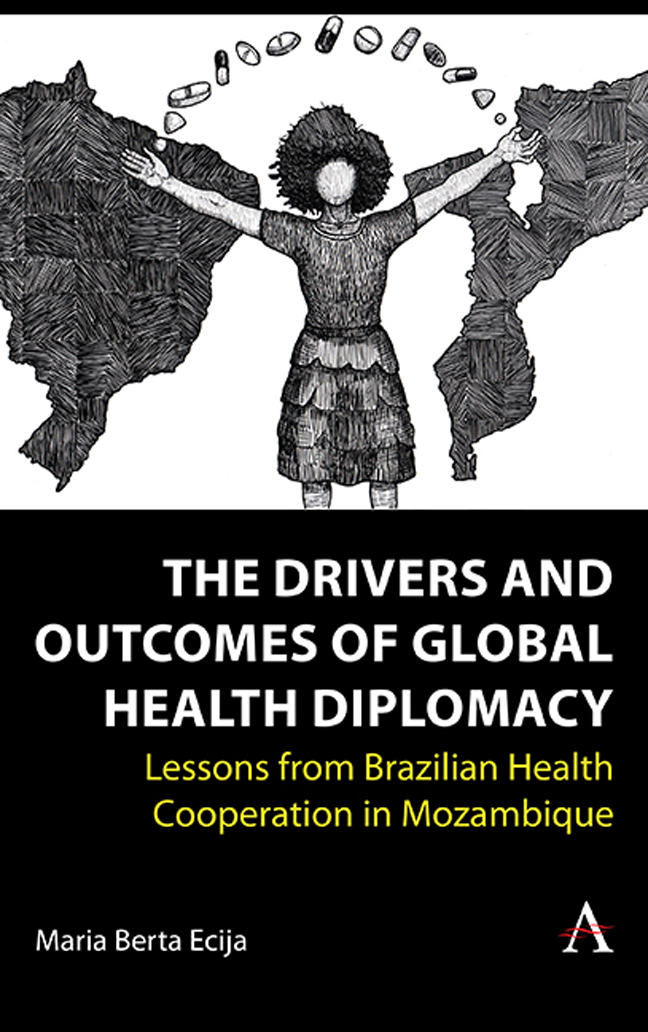 The Drivers and Outcomes of Global Health Diplomacy
The Drivers and Outcomes of Global Health Diplomacy Published online by Cambridge University Press: 29 February 2024
Literature Review
As set out by the main research question, the primary objective of this research is to address the power dynamics behind Brazil’s health cooperation with Mozambique. The partnership between these countries became very strong and promising in the early 2000s, when President Lula stepped into office in Brazil. According to Milani (2014, p. 7), health in the Brazilian context went through a constant process of internationalisation in the early 2000s, which happened ‘in parallel to the process of economic globalisation, such as the internationalisation of public policies and democratisation of the Brazilian system’. These changes have introduced new ideas and hierarchies into Brazilian foreign policy, especially in the realm of high politics and low politics. Within this context, health has become one of the axes of Brazilian foreign policy, especially because, as it will be argued throughout the literature review, it could navigate easily between low and high politics agendas. Moreover, it could build bridges with a multitude of actors and partners.
Fedatto (2017, p. 2298) points out that since the beginning of the 2000s, Brazil has tried to become more of a protagonist in discussions around global health. The main characteristics and debates adopted by the country have thus relied on the field of access to medicine, especially seeking to reduce the price of drugs at the international level. Meanwhile, in the national sphere, Brazil counted on its own national production of medicine to guarantee the distribution.
Throughout the literature review, the aim is to look at the different perspectives on the place of health in IR, and therefore in foreign policy agenda setting. Consequently, this will provide a base throughout the thesis for understanding the Brazilian strategy across different governments, namely, Fernando Henrique Cardoso (1994–2002), Lula da Silva (2003–2010) and Dilma Rousseff (2010–2014), contextualising Brazil’s historical context as a global health player. The interests and challenges of the foreign policy agenda will be debated, looking at the role of health in fulfilling some of the external goals of the country.
This thesis argues that there are three different moments that are crucial to understanding Brazilian foreign policy in health. The first is related to the country’s battle to have access to ARVs, which became the TRIPS battle under the Fernando Henrique Cardoso government (1994–2002).
To save this book to your Kindle, first ensure [email protected] is added to your Approved Personal Document E-mail List under your Personal Document Settings on the Manage Your Content and Devices page of your Amazon account. Then enter the ‘name’ part of your Kindle email address below. Find out more about saving to your Kindle.
Note you can select to save to either the @free.kindle.com or @kindle.com variations. ‘@free.kindle.com’ emails are free but can only be saved to your device when it is connected to wi-fi. ‘@kindle.com’ emails can be delivered even when you are not connected to wi-fi, but note that service fees apply.
Find out more about the Kindle Personal Document Service.
To save content items to your account, please confirm that you agree to abide by our usage policies. If this is the first time you use this feature, you will be asked to authorise Cambridge Core to connect with your account. Find out more about saving content to Dropbox.
To save content items to your account, please confirm that you agree to abide by our usage policies. If this is the first time you use this feature, you will be asked to authorise Cambridge Core to connect with your account. Find out more about saving content to Google Drive.